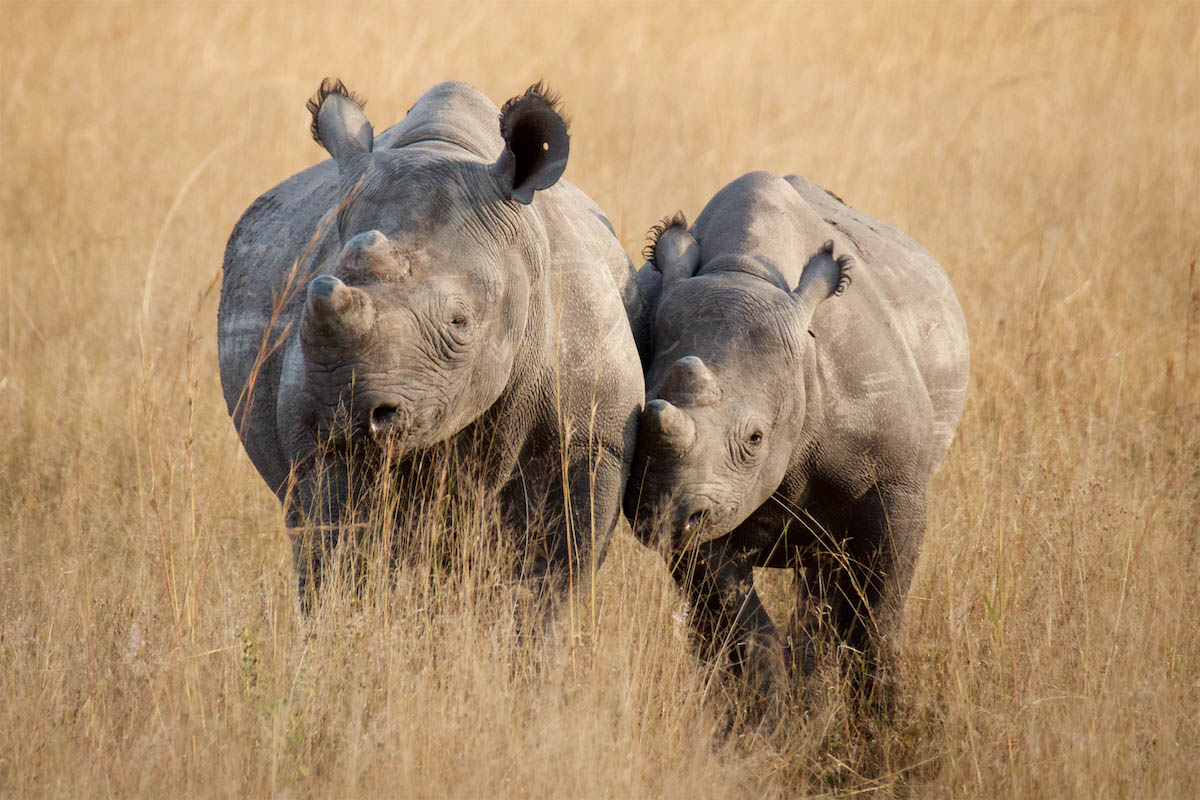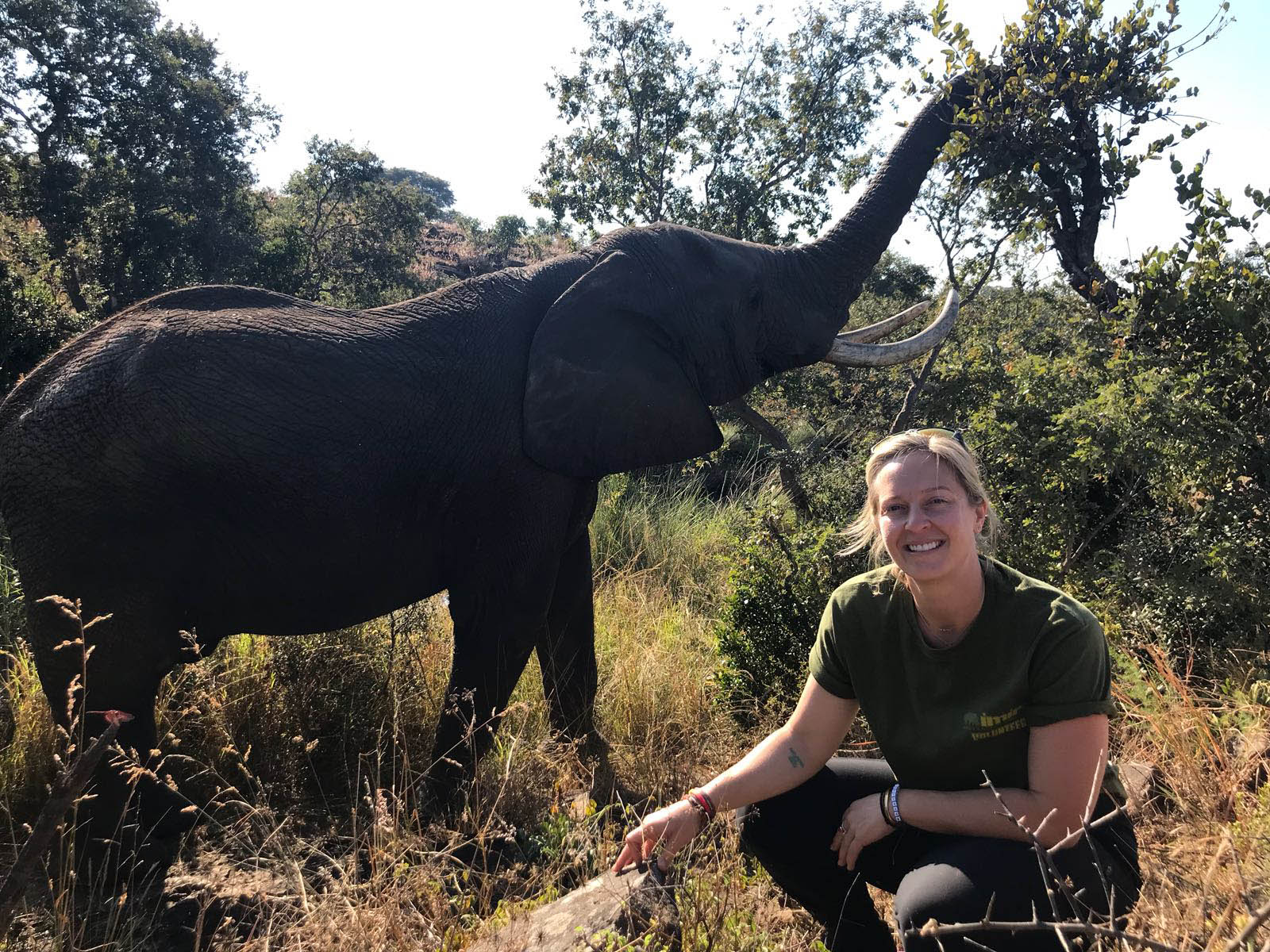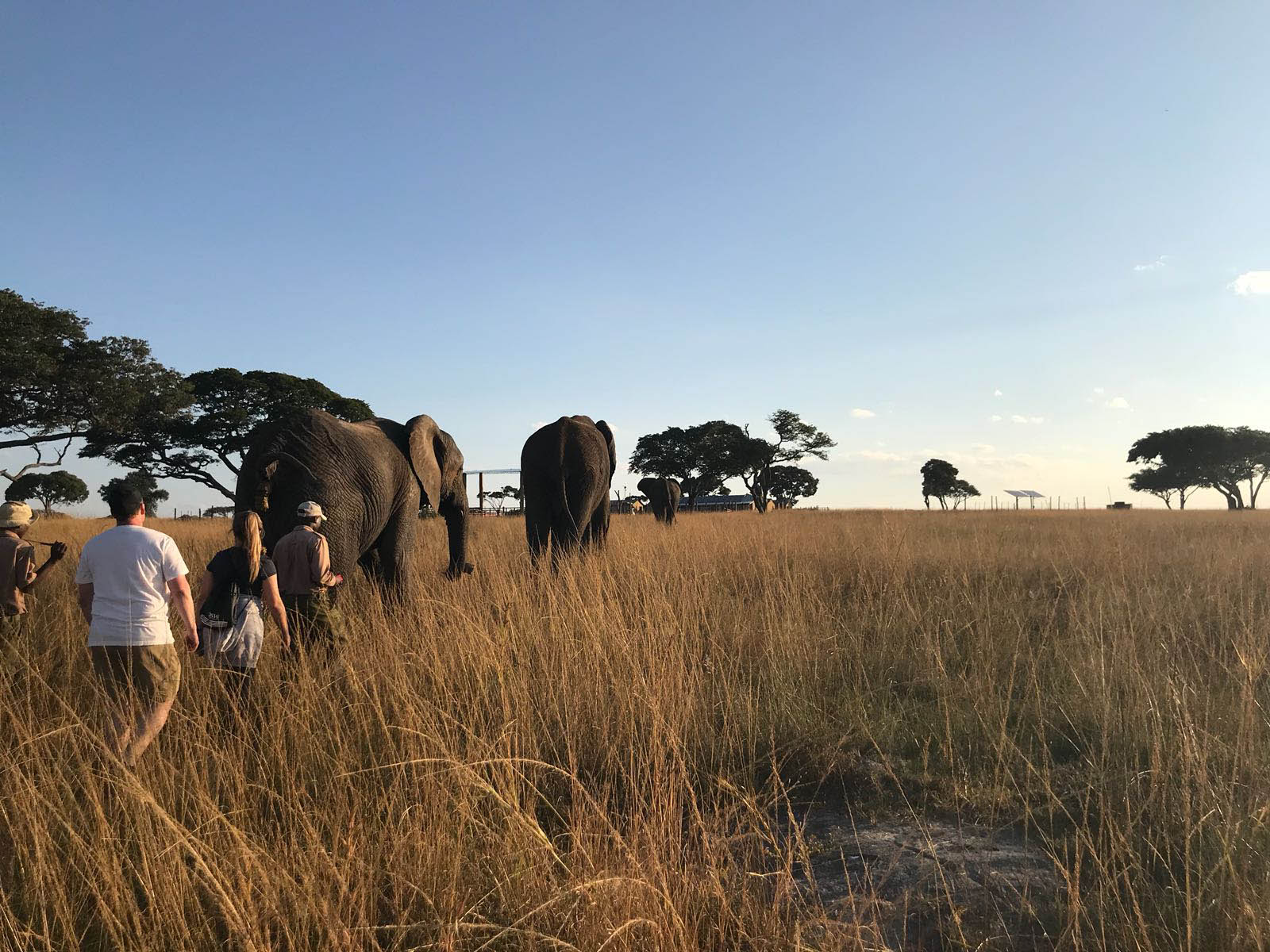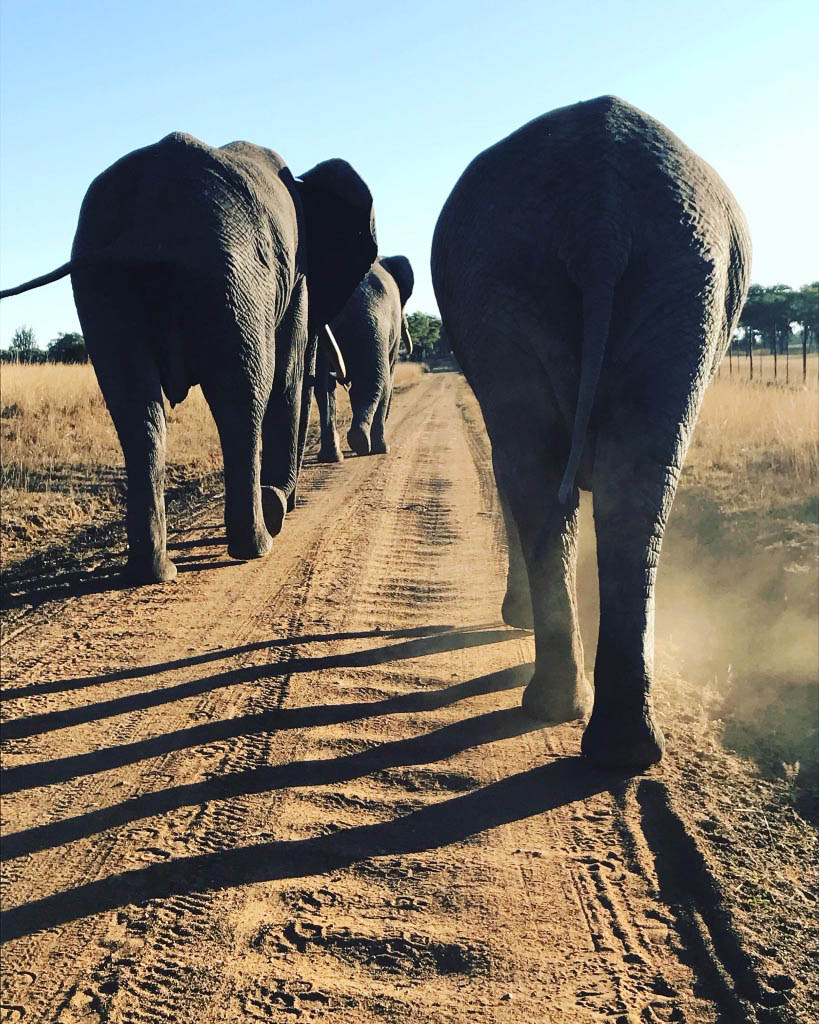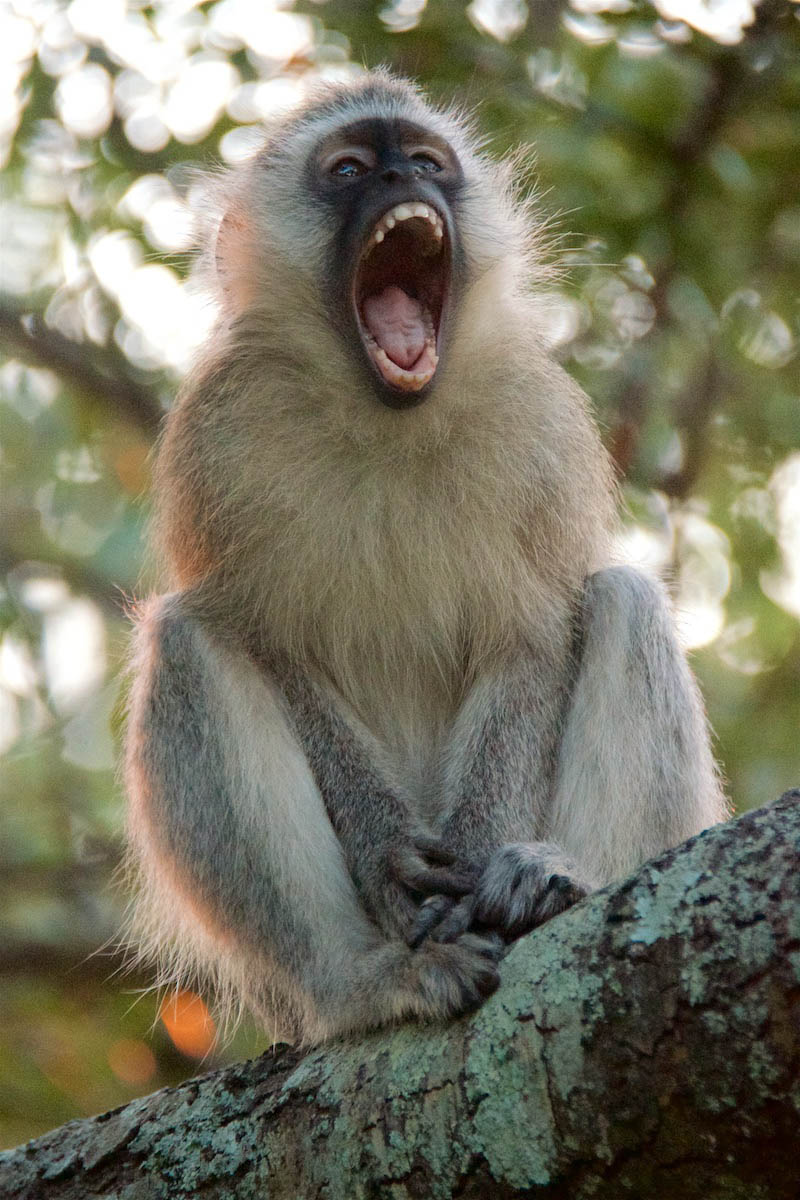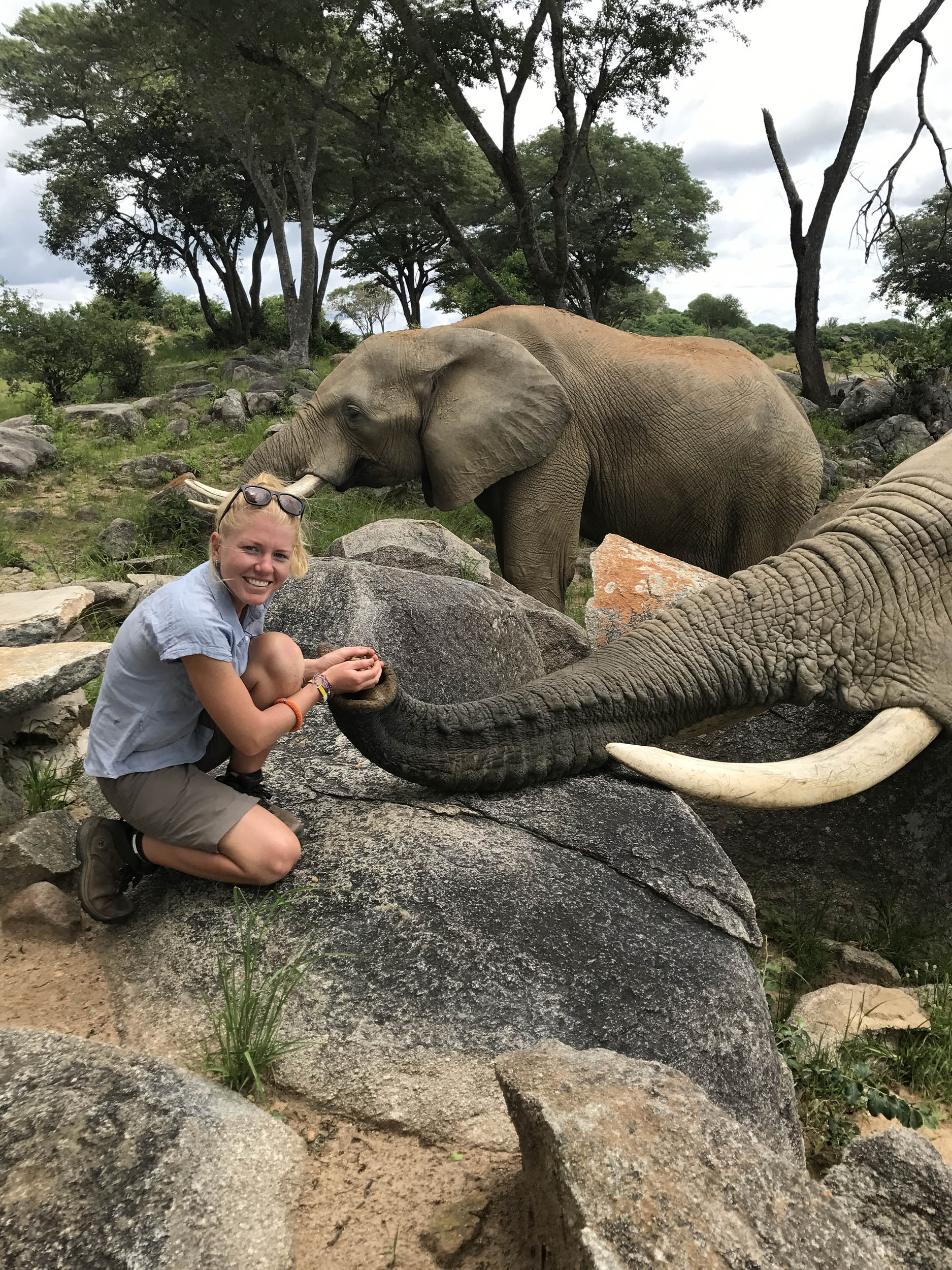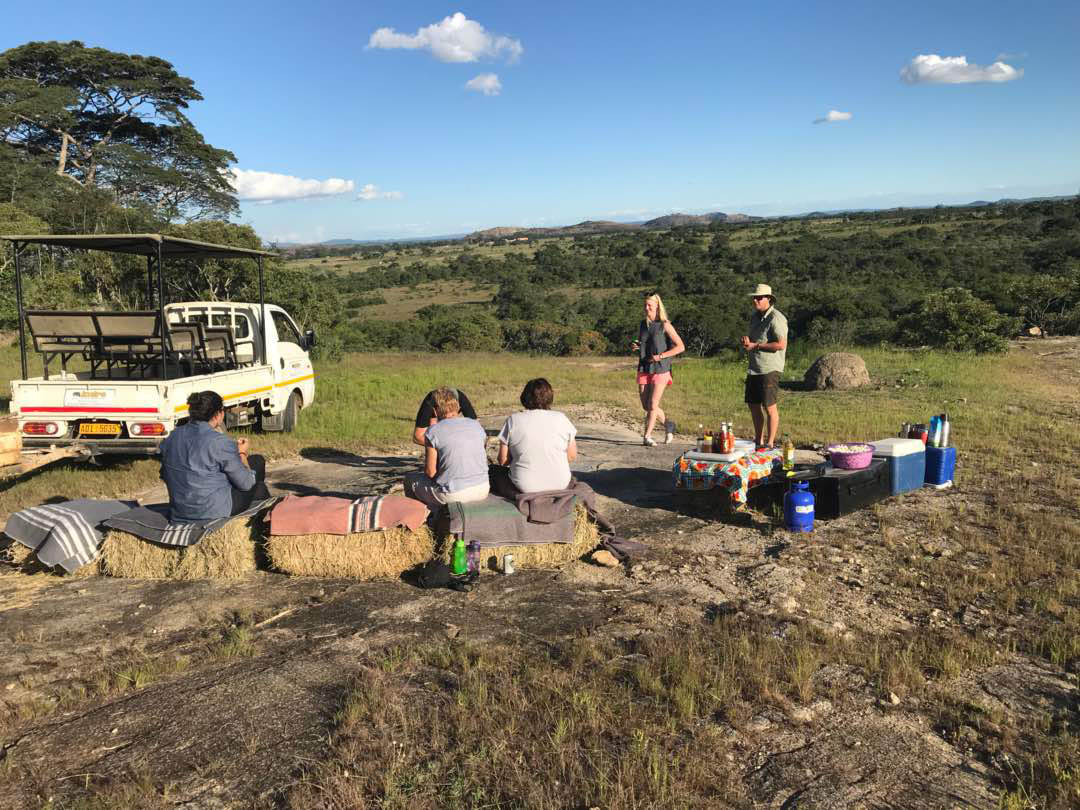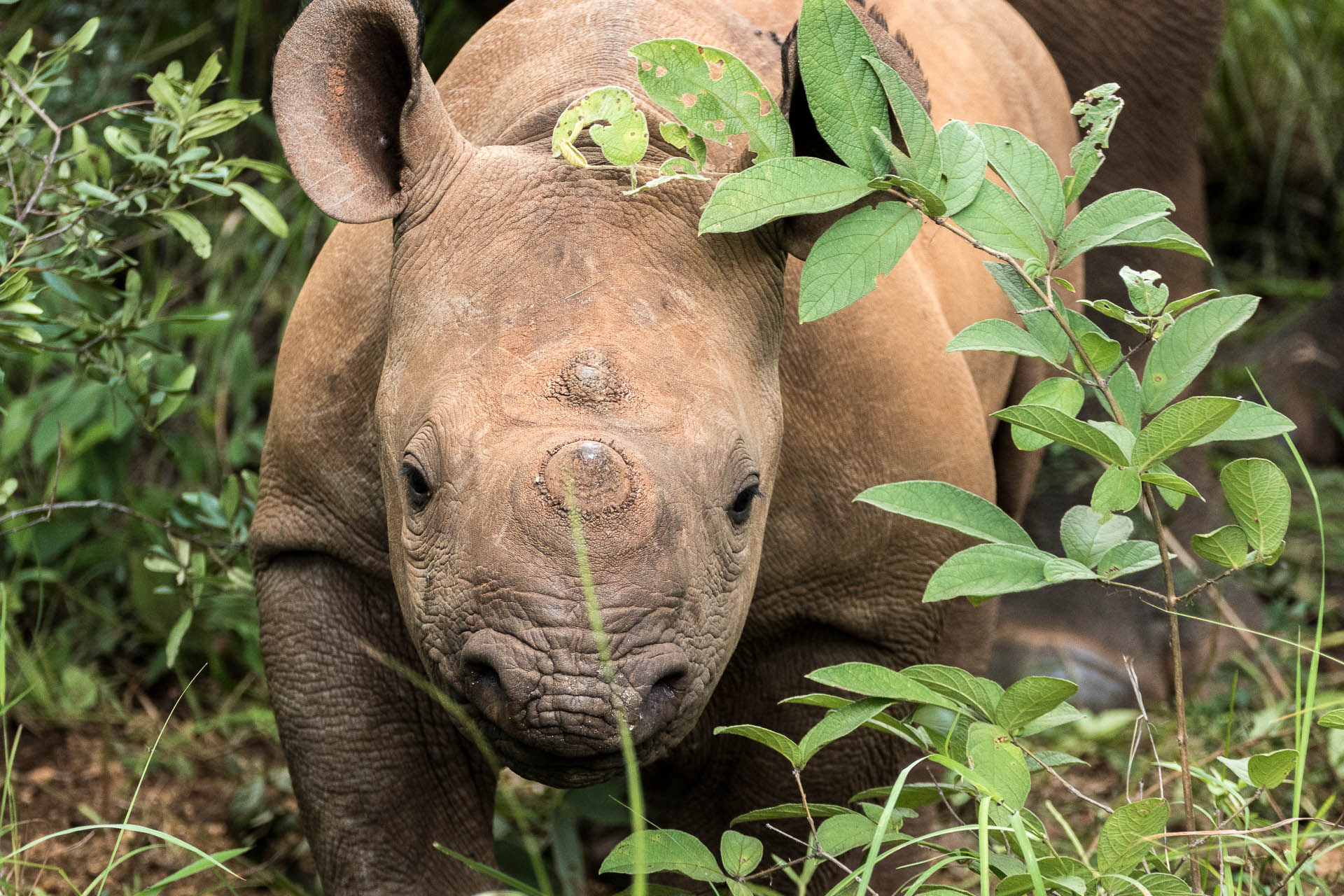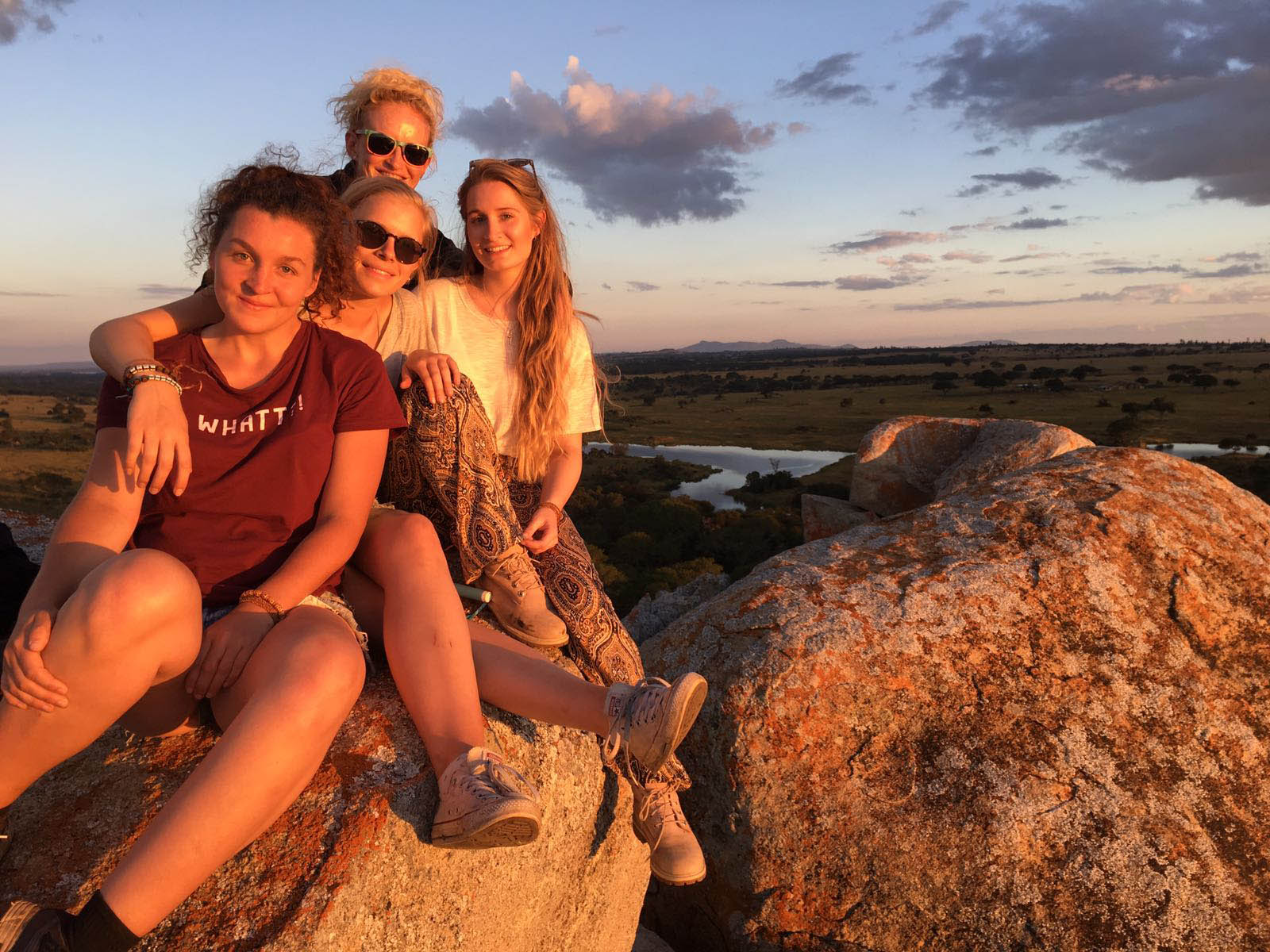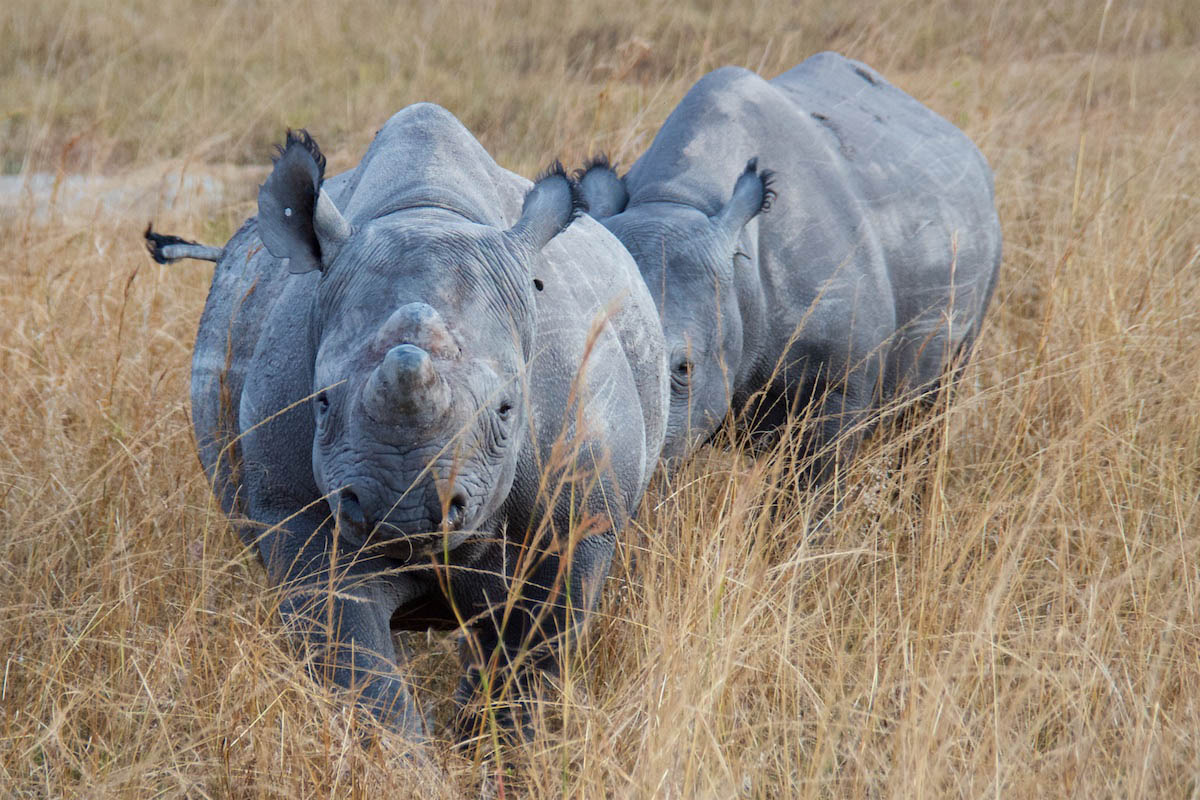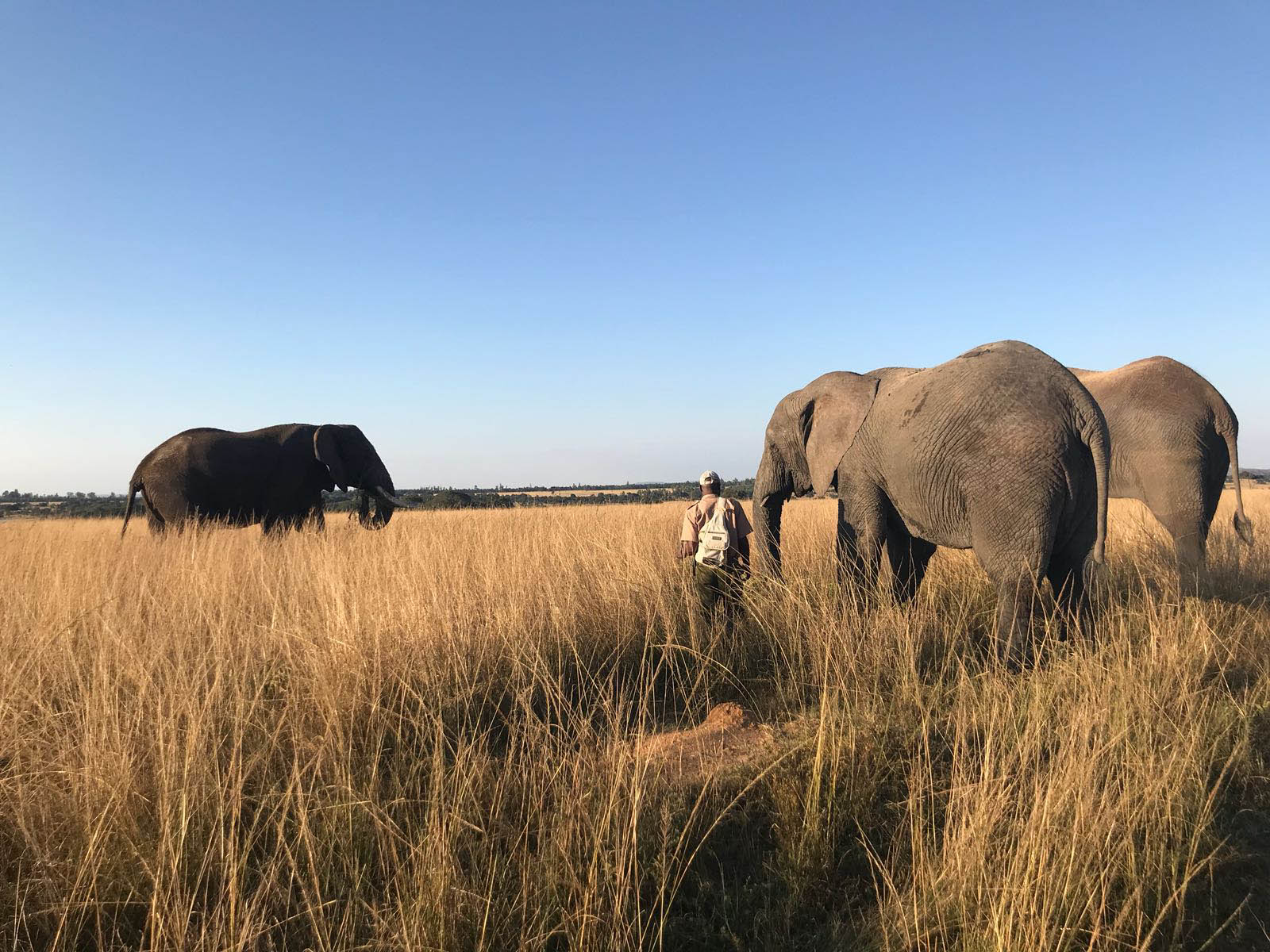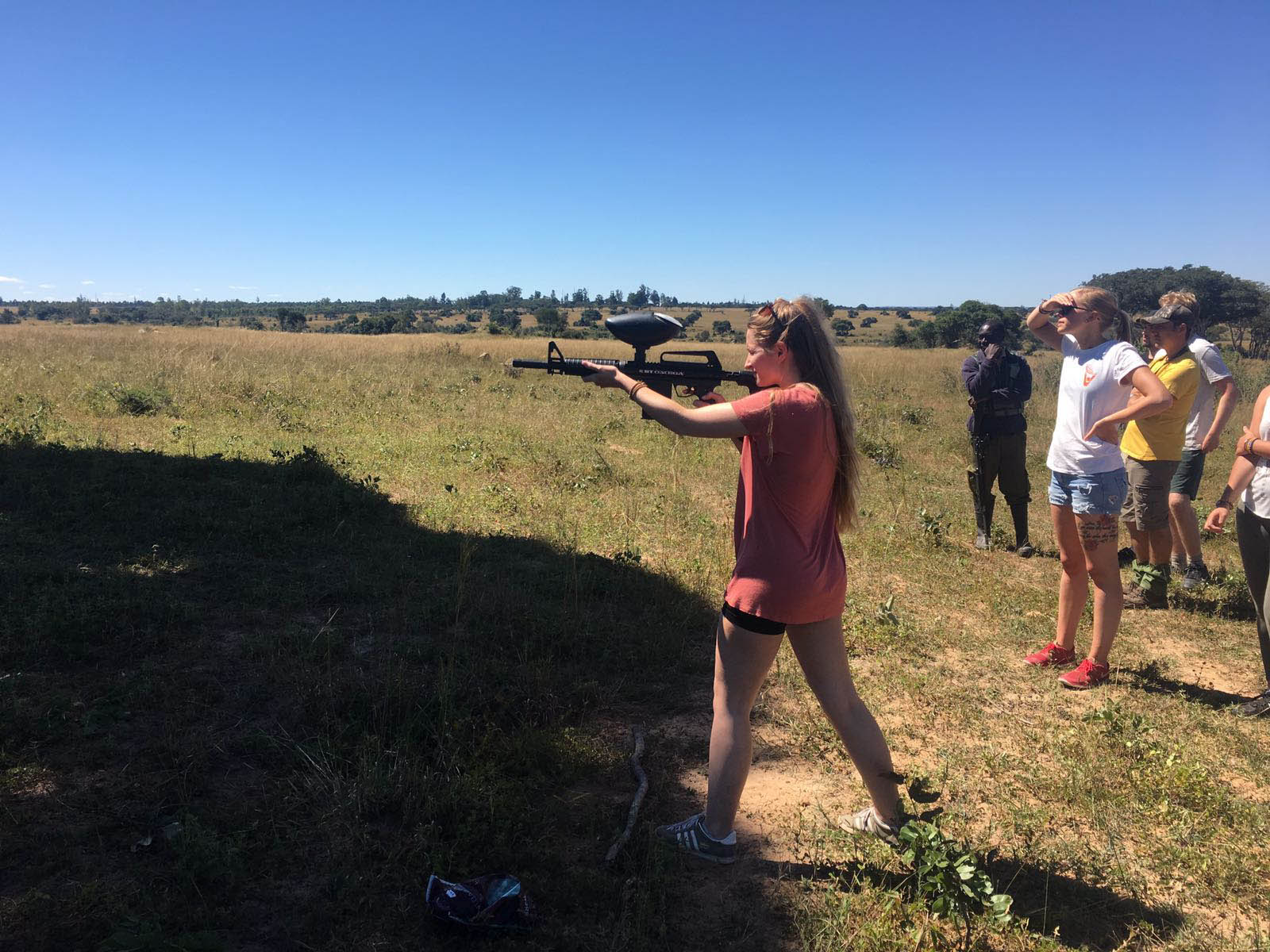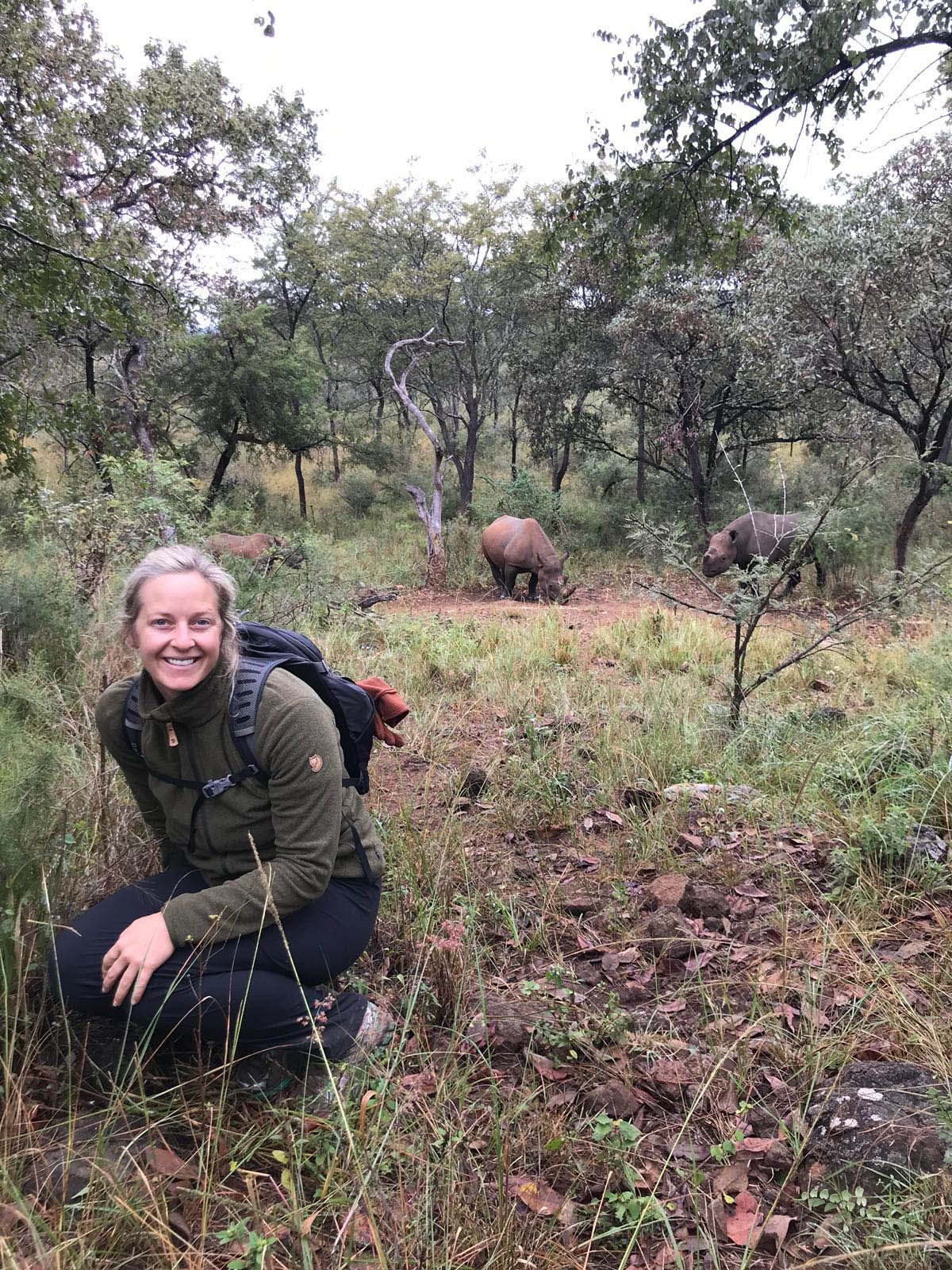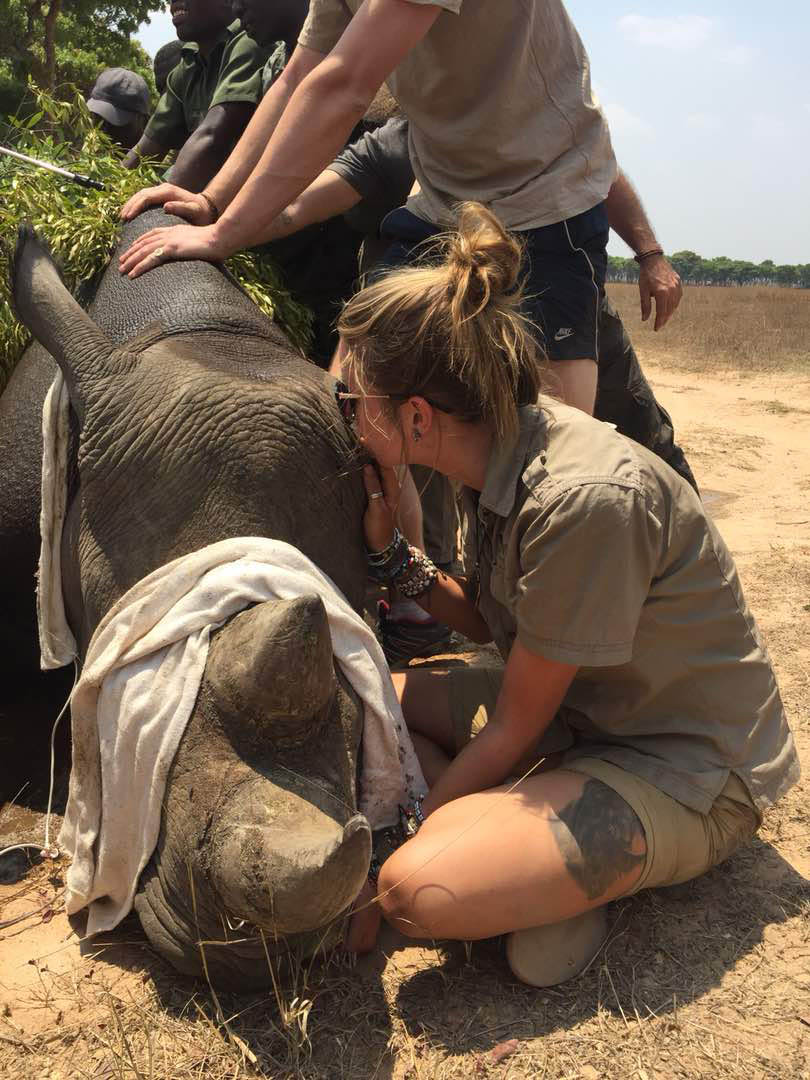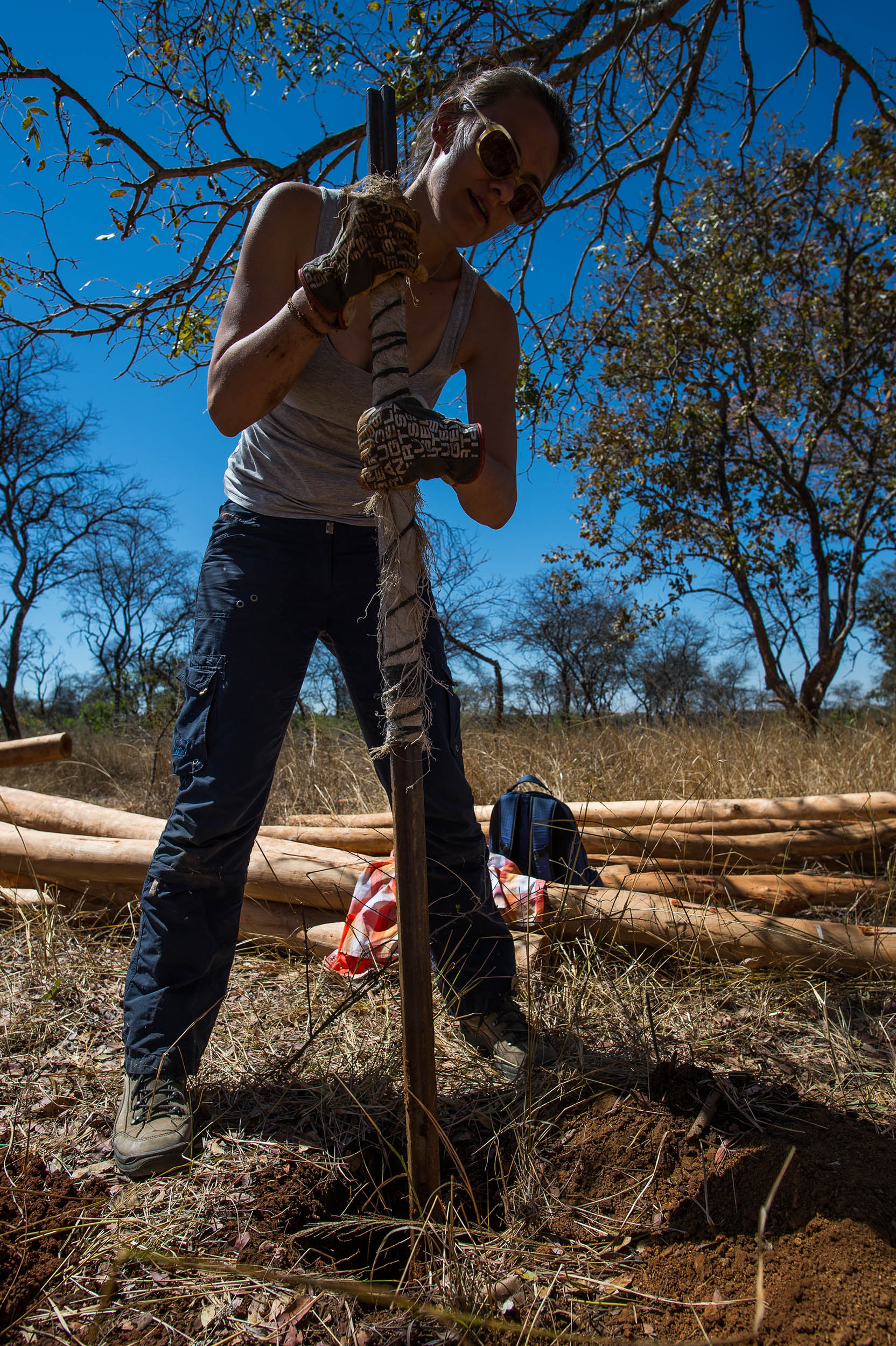Hands on elephant and rhino
conservation in Zimbabwe
Get a unique insight into the 10,000 acre reserve
-
Duration
1-8 Weeks -
Accompanied age
5+ -
Minimum age
17+ -
Start dates
Every Monday -
From
£670
-
Duration
1-8 Weeks -
Accompanied age
5+ -
Minimum age
17+ -
Start dates
Every Monday -
From
£670
Zimbabwe elephant and rhino sanctuary
Quicklinks
Get up close to rhinos and elephants in Zimbabwe, where you will play an active role in assisting with the day to day activities on a busy African reserve. You will be involved in valuable conservation work that plays a major role in securing the future for many endangered species.
With 4 of Africa’s Big 5 game; lions, elephants, rhinos and buffaloes along with a huge range of other wildlife including; sable, kudu, wildebeest, crocodile, giraffe and zebra this is an animal lovers paradise! You will hear incredible stories, learn about their history, witness amazing animal relationships and help with research projects to further everyone’s knowledge of the animals.
This is your chance to get a unique behind the scenes insight into the running of this 10,00 acre reserve and experience some of Zimbabwe’s most beautiful landscapes. If theres one thing you can be sure of, it's that no two days will ever be the same and something unexpected is always around the corner!
Background to the elephant and rhino programme
During the 1980s, Zimbabwe endured their worst poaching crisis, where rhino numbers crashed from 10,000 to less than 1,000 in just a few years. The Department of National Parks & Wildlife moved the remaining wild rhino into the custodianship of private conservancies, called Intensive Protection Zones - with the elephant and rhino sanctuary being one of these designated zones.
Although these extreme measures resulted in a dramatic decrease of poaching incidents, ivory poaching is still rife throughout Zimbabwe and many other countries across Africa to this day. In 2007, the sanctuary suffered their worst poaching incident ever, where three of their rhinos were killed. In spite of this terribly sad set back, the successful breeding and release programme continues to thrive, with several calves being born in recent years.
Ivory poaching is not just unique to rhinos, with elephants also being a target. These gentle giants have also seen a sharp decline in population numbers, with over 100 killed every year during the peak in the early 1990s. Unfortunately, this has resulted in many young elephants becoming orphans who need to be moved to a reserve in order to be protected and receive the care required to survive.
Many of the designated protection zones who care for orphaned wildlife and protect the most at risk animals are spread out across thousands of acres to ensure all of the animals can live in a semi-wild habitat. With such a vast space, not only do all of the animals need monitoring but the reserve also requires a lot of regular maintenance and upkeep. This is where you and other volunteers can play a crucial role.
As a volunteer, you will essentially become a member of the extended conservation family, where you will aid with all of the day-to-day activities associated with running the reserve. As a team, you will tackle crucial conservation activities, help educate the local community and assist with general maintenance around the reserve.
Where will I be volunteering?
Located upon a vast 10,000 acres of land in the beautiful Mashonaland East Province just 90 minutes from the capital Harare, the elephant and rhino sanctuary stands as a testament to meaningful wildlife conservation. Founded in the 1950s, the reserve has seen many arrivals of impressive species and due to the local team's and volunteers dedication, it has been able to provide a safe haven to many animals.
During the poaching crisis, the reserve was awarded the status of a designated protection zone and was given seven orphaned baby black rhinos to care for. This was the start to the internationally renowned breeding and release programme, which has seen a total of 15 rhinos born over the last 25 years. To date, 11 rhinos have been successfully released back into the wild.
The reserve is also home to three elephants who were orphaned at a very young age. The sanctuary rescued them and has since provided all of the necessary care required. Had the elephants not been saved and given a forever home, they would certainly have perished in the wild.
On top of the famous big animals above, there are also many more animals to discover and learn about, including buffalo, giraffe, zebras, impala, antelope, waterbuck and over 250 species of birds. The reserve is also home to many carnivores, including a lion, as well as smaller mammals that are more elusive including servals, civets, black backed jackals and some spotted hyenas.
This is a unique opportunity to live in the heart of Zimbabwe and share the experiences of a busy African conservancy. You will live in close proximity to many amazing animals and learn about the reserve's history, witness amazing animal relationships and help with research projects to further our knowledge of the wildlife which surrounds you.
What is my role?
As a volunteer, you will play a crucial role where you will aid with the running of the reserve. The volunteer programme is a life-changing experience for both you and the local team, as well as the local community and wildlife you help support. No two days on the programme are ever the same and there is always something unexpected around the corner! You will get involved with most of the following activities, depending on the time of year, the weather and what projects are going on at the time.
Rhino conservation - You will be working alongside the local anti-poaching team to track the rhinos using telemetry. Once found, you will then closely monitor the behaviour of the rhinos to identify patterns and to further our knowledge about the animals - which are notoriously difficult to study in wilderness areas. All recorded observations are then used to predict responses to different stimuli and learn how best to manage our rhino population and habitat. On top of this, you will also monitor feeding patterns to help prevent overgrazing and overbrowsing, to plan rhino movements through the conservancy and to determine if any supplements are needed to ensure they have a balanced diet.
Elephant observations and care - Unfortunately, the elephants on the reserve are not suitable to be safely released back into the wild, so will spend the rest of their lives here. You will be responsible for providing them with as high quality of life as possible, through providing enrichment activities and observing them. You will study the elephants as they roam the reserve by your side and also get to learn all about these iconic animals and understand the threats they are facing. Additionally, you will help to monitor their feeding patterns to ensure their diet remains balanced.
Anti-poaching and security - You will help support the anti-poaching efforts by undertaking snare sweeps around the reserve, looking for evidence of poaching and collecting snares and traps. This will help minimise small animal poaching and helps the dedicated Anti-Poaching Unit in their daily work to ensure that the large animals are protected. You will also have the opportunity to do some weapons training using paintball guns to simulate the scouts FN rifles and also join the APU as they do their drills and training.
Herd monitoring & boundary patrols on horseback - You may be invited to assist with herd monitoring and patrolling the reserve's boundaries on horseback. This unique experience is an excellent way of monitoring the animals on the reserve, as the gentle manner in which you approach will allow you to get very close and accurately take all of the necessary data. Please note that this activity is not guaranteed and is dependent on several factors.
Reserve maintenance - While volunteering in Zimbabwe, you may also take part in many activities to help maintain the conservancy. This could be anything from maintaining fences and roads, feeding nutritional supplements to the elephants, antelopes and lion, planting trees or removing alien species, cleaning animal beds, taking part in game captures and counting game by foot or vehicle.
Carnivore feeding - You may have the opportunity to help feed the lion and crocodile that call the reserve home. You will get to witness these mesmerising animals up close and learn all about them from the experienced local team.
Community outreach - There are several schools situated in close proximity to the reserve that our local team and volunteers help support. On average you will visit one of the schools twice per week in order to educate all of the children on topics such as the environment and wildlife as well as help teach core subjects like English and maths. You will also be able to get involved with sports and games and assist with any ongoing gardening or building projects.
What will a typical day look like?
You will generally be volunteering from Monday to Friday, with your working day starting around 6:30am and normally finishing at 5pm. Throughout the week you will also take part in some evening tasks, including night drives, cultural activities and sundowners! There are usually some activities planned for Saturday morning, with the afternoon and the whole of Sunday then free for you to do as you please.
Most days are split into three sessions with a sample itinerary below:
6:30-9am - Spending time with either the rhinos or elephants or supplementary feeding all of the animals around the reserve.
10am-12:30pm - Maintenance work around the reserve or assisting with English lessons within the school or anti-poaching tasks
2-5pm - Spending time with the elephants or going on a local tour or carnivore feeding or anti-poaching tasks
Evening - Free time or night drive to observe nocturnal animals or watching the sun go down at the viewpoint or taking part in a Shona cultural evening
Where will I be staying?
During your time volunteering in Zimbabwe, you will be placed in one of two camps. Both sites are located in the heart of the game reserve (around a 10 minute drive between each), where you can enjoy the far reaching views across the bushveld and even hear an animal noise or two in the background. In your free time you will be able to take part in many activities around the accommodation and reserve, such as hiking, swimming in the dam, bird spotting or simply relaxing and enjoying your surreal surroundings.
Zimbabwe is one of Africa's most underrated countries and still remains unspoilt from mass tourism. From the moment you arrive you will be greeted with welcoming smiles and experience the friendly nature of all Zimbabwean people. You may have time to visit the famous Victoria Falls, try your hand at bargaining at a flea market in Harare or head to Lake Kariba.
Other things to consider
Ethical sanctuary / reserve - The Mighty Roar was established to create and help promote only 100% ethical wildlife programmes. We regularly visit each and every programme we offer to ensure all of our expected high standards are continuously being met and that the programme's aims match our ethos. The elephant and rhino programme in Zimbabwe goes above and beyond our expected standards and you can volunteer with the peace and reassurance you are actually helping the animals, rather than harming them.

